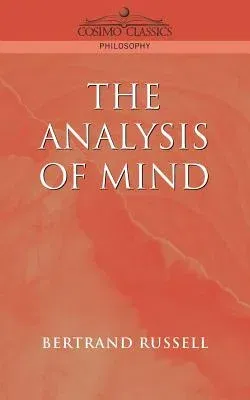"This book has grown out of an attempt to harmonize two different
tendencies, one in psychology, the other in physics, with both of which
I find myself in sympathy, although at first sight they might seem
inconsistent," Bertrand Russell wrote at the beginning of "The Analysis
of Mind," a collection of lectures delivered in London and Peking. He
then unfolds for his readers his ideas on consciousness, instinct and
habit, desire and feeling, introspection, perception, sensations and
images, memory, words and meaning, belief, and characteristics of mental
phenomenon. Throughout, Russell explores the mystery of the mind, and
proposes that there exists a fundamental material of which both mind and
matter exist. "The stuff of which the world of our experience is
composed is, in my belief, neither mind nor matter, but something more
primitive than either," he wrote. "Both mind and matter seem to be
composite, and the stuff of which they are compounded lies in a sense
between the two, in a sense above them both, like a common ancestor."
"Brilliant. . . one of the most interesting and important books that Mr.
Russell has yet given us." --Nation "Here are the old clarity and the
old charm; the restrained, illuminating with .a most brilliant essay in
psychology." --New Statesman "Most interesting.a most valuable
contribution to its subject." --Manchester Guardian "This interesting
and fascinating book.is a perfect model of what such books should be.the
style is so clear and technicalities so carefully explained that the
reading of the book is an intellectual pleasure rather than a mental
effort." --Church Times


